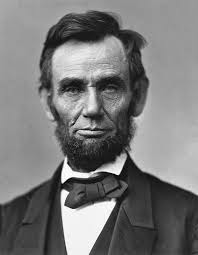Weird Coincidences
C.A. Asbrey
Carrying on from last month's post on Robert Lincoln's uncanny connections to presidential assassination, there were other strange things that I thought might interest you.
Many have noted as synchronicity between the murders of JFK and Lincoln. Apart from serving in the same position they both faced significant Civil Rights challenges during their time as president and were elected to Congress in a ‘46 year; 1846 for Lincoln, Kennedy in 1946. The two men entered the White House in a ‘60 year; 1860 and 1960, and both lost a child while serving as President. Willie Lincoln at 11 from typhoid in 1862, and JFK's premature baby of JFK, Patrick, passed away at just two days old in 1963.
 |
| John F. Kennedy |
The similarities grow with their deaths. They were both shot, probably not that an uncommon method of assassination, but both were shot in the head. Lincoln at close range in box number seven while attending a performance of "Our American Cousin" in Ford's Theatre, Kennedy from a distance while riding in the seventh car an open-air Dallas motorcade in a car manufactured by the Ford Motor Company called a Lincoln. The underlying commonalities continue in that they were both killed on a Friday and they were both killed by men with three names Lee Harvey Oswald and John Wilkes Booth. On top of all that, both attackers were able to flee the scene of the murders, and were killed before coming to trial.
To top all of that off, both were succeeded by VPs called Johnson, and both were Southerners, whereas the presidents were Northerners. That part is less surprising as it's common for presidents to choose a running mate who will broaden their appeal.
 |
| Thomas Jefferson |
American history shares more than a few similar synchronicities. Political adversaries Thomas Jefferson and John Adams both died on the same day, the 4th July 1826. They were the last two remaining revolutionaries, and despite being rivals, had maintained a relationship by letter in their later years. On his death bed the 90-year-old Adams was unaware of his Jefferson’s death, whispered, “Thomas Jefferson survives.” He was wrong, as Jefferson had already died a few hours before.
When the Civil War broke out in 1861, the first battle was the Battle of Bull Run. "Bull Run" got the name of a stream on the land a 46-year-old grocer named Wilmer McLean in Manassas, Virginia.
The battle left his small farm in a state of devastation, so McLean took his wife to the safety of a new home in Appomattox, Virginia,. For around four years, this proved to be a good move until war found him again. In 1865, the war ended with Robert E. Lee surrendering to Ulysses S. Grant at the Appottomax Courthouse, mere steps from McLean's new property. The war begun and ended with Mr. McLean.
This is vaguely similar to the man who found war followed him when the Americans bombed Japan in WW2. Tsutomo Yamaguchi was unlucky enough to be in Hiroshima when the atomic bomb fell. He fled on a train, seeking safety. He arrived in Nagasaki in time to see a second flash. Over half his is body was covered in burns from radioactive ash, but he survived. Yamaguchi is the only person recognised by the Japanese government as having survived both bombings. The poor man died of cancer in 2010.
 |
| George Washington |

I do love trivia. Historical coincidences and similarities that have connection after connection just fill my trivia-loving heart with joy. haha This part made me think of The House that Jack Built. ;-) :
ReplyDeleteThis set of events is considered one of the sparks that started the Seven Years War, which in turn caused the taxation, which then lit the fuse that started the revolutionary war.
Thanks for popping by. Yes, I think they are a lot of fun too, and learned a few things researchig this.
DeleteI am so enjoying these series of posts. Thank you for researching and sharing it. It warms my researchers heart. Doris
ReplyDeleteThanks so much, Doris. Once you start researching these, it's so easy to disappear down the rabbit hole.
ReplyDelete